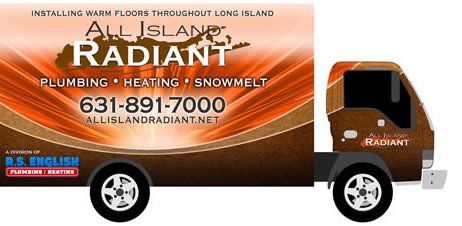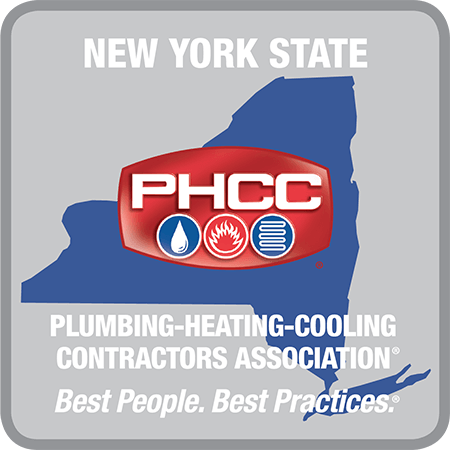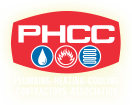FAQs
Frequently Asked Questions About Residential Water Filtration Systems
How much does a home water filtration system cost?
Costs vary depending on the type of system, your water quality, and the size of your home.
- Point-of-use systems (like under-sink filters) can start around $200–$500 installed.
- Whole-home systems typically range from $1,500–$5,000+.
More complex setups for serious contaminants may be higher, but All Island Water Filtration designs every system to address your specific water concerns.
Where is a water filtration system installed?
Whole-home systems are usually installed where your main water line enters your home — often in a basement, utility room, or garage — so every tap, shower, and appliance gets filtered water.
Point-of-use systems (like under-sink filters) are installed right at the water source you use most.
If I’m on city water, do I still need water filtration?
Yes. Even city water can contain chlorine, sediment, and trace contaminants like PFAS, lead, and pesticides that municipal systems can’t completely remove.
A system from All Island Water Filtration provides an extra layer of protection while improving taste, odor, and overall quality.
Are water filtration systems more important if I have a well?
Absolutely. Well water is not regulated like city water and can contain bacteria, iron, manganese, sulfur, or other contaminants.
Filtration ensures your water meets safe drinking standards and protects your plumbing and appliances.
Does the age of my well affect whether I need filtration?
Yes. Older wells may have outdated construction, degraded casings, or increased exposure to contaminants. Even new wells can benefit from filtration, but older wells should be tested regularly and may require more specialized treatment.
How will I know if I need water filtration?
The best way is through a professional water test.
Signs you might need filtration include:
- Unusual taste or odor
- Staining on sinks or clothing
- Cloudy water
- Skin irritation
Even if your water looks and tastes fine, certain contaminants are invisible and tasteless.
What types of contaminants can a filtration system remove?
Depending on the system, filtration can remove:
- Chlorine & chloramine
- Lead, iron, manganese
- Sediment & sulfur
- PFAS & pesticides
- VOCs (volatile organic compounds)
- Microorganisms like bacteria and cysts
How often will I need to maintain the system?
Maintenance depends on your water quality and system type. Most systems require filter changes every 6–12 months, while some specialty filters or tanks last several years.
Annual professional checkups from All Island Water Filtration are recommended to keep your water safe and your system running efficiently.
Will a water filtration system improve the taste of my water?
Yes. Most homeowners notice a dramatic improvement in taste, odor, and clarity right away. Removing chlorine, sulfur, and other impurities makes water more pleasant for drinking, cooking, and even bathing.
Will filtration help protect my plumbing and appliances?
Definitely. Hard water, sediment, and corrosive elements can shorten the lifespan of plumbing fixtures, dishwashers, water heaters, and washing machines.
Filtration reduces buildup and wear, saving you money over time.
Can a water filtration system soften my water too?
Some systems can filter and soften in one unit, while others are designed specifically for filtration and require a separate softener. The right solution depends on your water test results.
How long does installation take?
Most whole-home systems can be installed in 4–8 hours. Point-of-use systems are usually completed in 1–2 hours.
Will installing a water filtration system increase my home’s value?
While it’s not the same as a kitchen remodel, a professionally installed filtration system can be a selling point for health-conscious buyers — especially in areas where water quality is a known concern.
What’s the difference between water filtration and water softening?
- Filtration removes unwanted contaminants like chlorine, lead, PFAS, sediment, pesticides, or bacteria, making your water safer and better-tasting.
- Softening removes hardness minerals like calcium and magnesium that cause scale buildup on fixtures, dishes, and appliances.
Filtration = purity (health & safety)
Softening = hardness removal (protects plumbing & appliances)
Many homes benefit from both, and All Island Water Filtration can design a system that combines these functions in one.
Do water filtration systems waste water?
Most whole-home filtration systems do not waste water during normal operation. Some reverse osmosis systems produce a small amount of wastewater, but high-efficiency options are available.
If I install a water filtration system, will I still need to buy bottled water?
In most cases, no. A properly designed filtration system delivers water that’s as clean (or cleaner) than most bottled water brands — without the plastic waste or ongoing cost.
Many homeowners find they prefer their filtered tap water and save hundreds per year by eliminating bottled water purchases.
What are the financial benefits of installing a water filtration system?
A quality system from All Island Water Filtration can pay for itself over time by:
- Eliminating bottled water costs – $500–$1,000/year for a family of four
- Reducing plumbing repairs – Prevents sediment and corrosive minerals from damaging pipes, fixtures, and appliances
- Extending appliance lifespan – Protects water heaters, dishwashers, washing machines, and coffee makers
- Lowering maintenance costs – Less scale buildup means fewer service calls for clogs or leaks
- Improving efficiency – Appliances that run on clean water use less energy and detergent, saving on utility bills
What is Reverse Osmosis, and how does it fit into a home water filtration system?
Reverse Osmosis (RO) is a purification process that pushes water through a semipermeable membrane under pressure, blocking even the smallest impurities while allowing only pure water molecules to pass through. It is capable of removing:
- Heavy metals like lead and arsenic
- PFAS (“forever chemicals”)
- Fluoride
- Nitrates and sulfates
- Pesticides and herbicides
- Bacteria, cysts, and some viruses
RO is most often installed as a point-of-use system under your kitchen sink for drinking and cooking water, paired with a whole-home filtration system that handles the rest of your water needs.
All Island Water Filtration uses modern, high-efficiency RO units that waste far less water than older models and deliver exceptional taste and purity — often better than bottled water.
Top 6 Myths About Water Filtration — Busted
Myth 1: “I’m on city water, so it’s already safe — I don’t need filtration.”
City water is treated to meet minimum safety standards, but that doesn’t mean it’s free from contaminants. By the time it reaches your home, water can pick up chlorine, chloramine, sediment, PFAS, lead, pesticides, and even pharmaceuticals.
A high-quality filtration system from All Island Water Filtration adds an
extra layer of protection, removes chemicals that affect taste and smell, and ensures every drop of water in your home — from the kitchen tap to the shower — is clean and safe.
Myth 2: “I’ll still need bottled water, even with a filtration system.”
For most homeowners, this simply isn’t true. With the right filtration system in place, your tap water can be as clean — or cleaner — than leading bottled water brands like Poland Spring.
- No more hauling heavy cases from the store.
- No more spending $500–$1,000 a year on bottled water.
- No more contributing to plastic waste.
Once you experience the taste of freshly filtered water from All Island Water Filtration, bottled water often becomes unnecessary.
Myth 3: “If my water looks and tastes fine, it must be safe.”
Looks can be deceiving. Some of the most harmful contaminants — like lead, arsenic, PFAS, and certain bacteria — are completely invisible and tasteless.
That’s why professional water testing is essential. All Island Water Filtration provides water testing services to identify exactly what’s in your water and recommend a custom solution to address it.
Myth 4: “Water filtration and water softening are the same thing.”
This is one of the most common misunderstandings.
- Water filtration is focused on removing contaminants that affect health, safety, and taste — think chlorine, heavy metals, bacteria, and harmful chemicals.
- Water softening targets hardness minerals like calcium and magnesium, which cause scale buildup, cloudy glassware, and shortened appliance life.
While they solve different problems, they work beautifully together. In fact, All Island Water Filtration often installs systems that
both filter and soften water for total home protection.
Myth 5: “Water filtration systems are expensive to run and maintain.”
Modern filtration systems are designed for efficiency and low upkeep.
- Most filters only need replacing every 6–12 months.
- Many whole-home systems require little to no electricity.
- Annual maintenance is minimal compared to the cost of repairing plumbing, replacing appliances, or buying bottled water.
When you consider the long-term savings — fewer plumbing issues, longer-lasting appliances, lower bottled water costs — filtration often
pays for itself within just a few years.
Myth 6: “Reverse Osmosis is overkill for home use.”
Not at all. RO is the gold standard for drinking water, removing contaminants that most standard filters can’t touch.
In fact, many bottled waters are just municipal water run through RO. Installing an RO system at home gives you
bottled-water quality for pennies per gallon — without the plastic waste or heavy lifting.
Bottom line:
Water filtration isn’t a luxury — it’s a smart, long-term investment in your health, your home, and your wallet. Whether you’re on city water or a private well, All Island Water Filtration can help you enjoy clean, safe, and great-tasting water every day.






